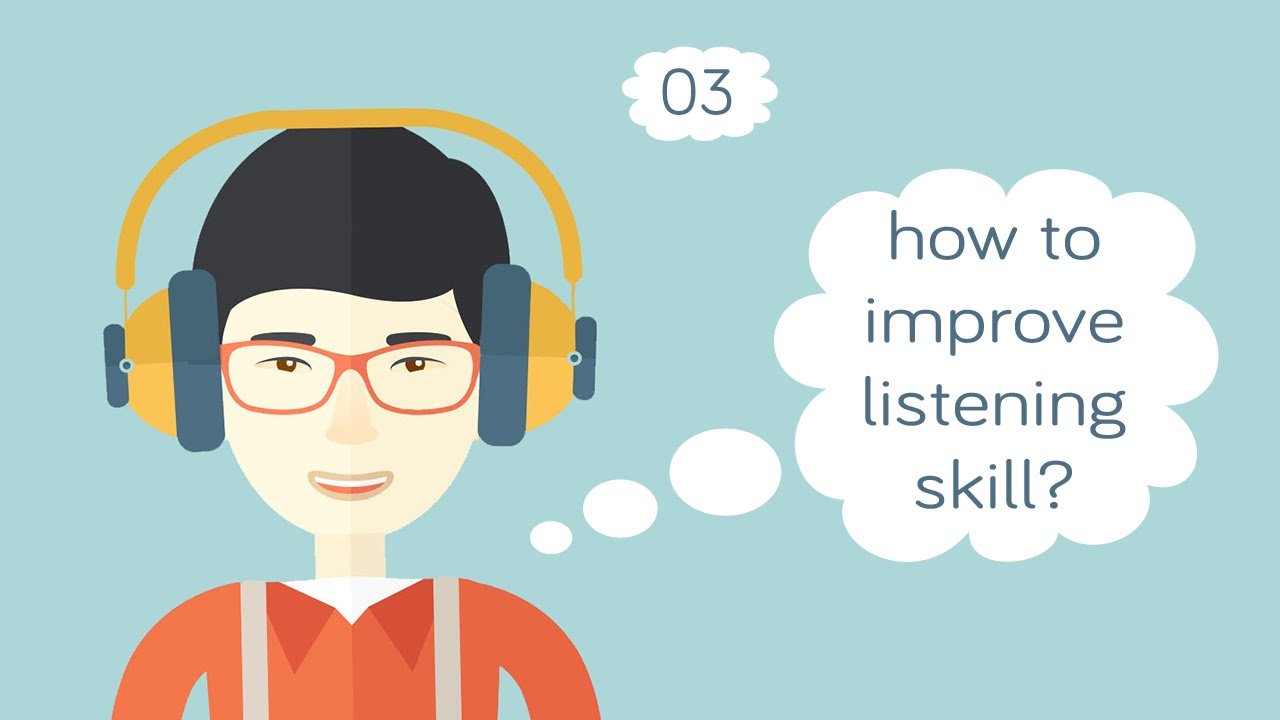Now back to the listening skills as one of the most famous and effective communication skills—and perhaps also the most important of all. As we said, listening skills account for about half of the entire communication process. And if you want the truth, it is a difficult skill to practice, let alone master.
Everyone, especially with the increasing input from the media and the clashing and dividing of the public’s opinions, wants to talk and carry on without interruption. Even in personal or practical matters, it often happens that one begins to speak without caring that others need to respond or express themselves.
Indeed, some, unfortunately, care more about the momentary victory without being interested in hearing from the other side, whether in a normal discussion or argument.
In any case, mastering the listening skills requires great respect for oneself and others. Because it allows them to express themselves while also allowing you to express yourself.This requires mutual respect.
At the same time, being a good listener allows you to receive as much information and be exposed to more experiences and knowledge – even linguistics – while also being able to arrange them so that you have a clear idea of what the other person is trying to say.
Here are a few tips we think you’ll need to know to adopt one of the most popular communication skills: listening.
1) Ask more questions.
When you are trying to understand one of them, make sure that you have covered all aspects that you think will help you form your idea. Some details may be overlooked by the speaker, and there is no way to know them except by asking about them.
We must also point out that asking questions is in itself another independent skill, and in fact, it measures the awareness and insight of the questioner.
I mean, you don’t expect someone to ask you a long and broad question about an important life decision so that the first thing he asks about is something else that has nothing to do with it, like the weather, for example.
At the same time, the questions should not be so open that they might change the course of the topic or double its size.
Certainly, asking questions means that the recipient pays attention and focuses on the person speaking, which will necessarily push him toward more participation and openness with him.
Some sample questions:
- Can/want to tell me more about this topic?
- What is an example of this from your experience?
- Do you have any good stories about it?
- What made you so interested in pursuing what you do?
- What is the biggest lesson you learned from what happened?

2) Determine the available time.
By setting the interlocutor’s expectations of the time available, this will actually increase the efficiency of the conversation, so I start conversations by letting people know how much time you have to talk to them.
Of course you wouldn’t say bluntly or tastelessly that you had half an hour and that he had to finish what he wanted to say quickly, or else you’d let him do it himself.
But maybe you will kindly indicate that you want to listen to them for as long as possible because you really enjoy talking to them, although this time you have half an hour until the train or work or leave or whatever.
Remember the point of kindness we made earlier? Now we emphasize it and add a verse to it. It’s important to take control of your time and your day yourself and not make it vulnerable to others (otherwise, you’ll never be able to do anything).
But at the same time, you have an emotional intelligence that makes others feel appreciated and enthusiastic on your part, even just by talking to them.
From this, it is clear that the person speaks to you completely at ease and that you must be fully present during the time that you have specified, unless an emergency occurs over which you have no control.
3) Minimize talking and interrupting as much as possible.
As we learned in schools in the past. The opposite of listening is speaking. You cannot listen and speak at the same time.
You want to give the interviewer his full opportunity to speak and express himself fully without interruption, perhaps with a question of value here or there.
Allow yourself to receive as much information and ideas as possible. If you have an irresistible comment, maybe you can say it. Otherwise, you’d better keep it until the end.
Interrupting can distract and confuse the speaker, and maybe even annoy him. The important thing is to give the speaker a good and effective experience with you.
The above skills are for listening only, and the next three or four tips cover all aspects of the communication process.
4) Master the art of body language.
Whether you are a listener or a speaker, your body and face say half of what you want to say, and the rest is expressed in your tongue or writing.
Learn how to convince others or explain your point of view to them by enhancing your facial expressions, your hand gestures, and even your standing or sitting position. Then you have to understand its significance as well-to understand what your interlocutors are implicitly trying to say through their own expressions.
Joining hands means stimulation or secrecy, and this may contradict what the other says-that he is not angry or tense, for example, or that he does not hide anything-while joining his arms says the opposite.
Sitting on the edge of a chair might indicate enthusiasm, readiness, or excitement, so you understand that your interlocutor really cares about what he’s saying or is genuinely moved.
5) Share with others.
Humans love to listen and appreciate. And they often like to listen to people who accept their hearing as well. Therefore, be the active listener in the discussion, not the silent listener. It is also important to know where, when, and how to participate and interact. Not all interactions are good.
You may think that the time is right to make a comment when it might provoke or distract the other person.
If you’re not sure about the right way to participate, you might just make explicit facial expressions or nods and grunts to follow along and engage. It means nodding in the affirmative if you agree with or approve of what the other person is saying or furrowing your eyebrows if you hear something that hurts or shocks them.
Overall, silence is acceptable. But reactive silence is the best!

6) There is no need to sit down
whether you are the addressee or the listener. There is no need for you to feel shy or nervous about engaging in a conversation, especially with people you meet for the first time.
Some are also ashamed of the way they speak, stutter, lisp, or even smile, so they refuse to participate or talk and prefer to withdraw.
which is really wrong, if not dangerous. These or other factors are nothing to be ashamed of because they do not define who you are or what you are worth. Indeed, it is rare that anyone cares about it in the first place.
In fact, if someone has a desire to make fun of anything around you, they are basically not the best group to be around, even if they are the best in your opinion. In large part, it means they are toxic people you don’t want to be around.
In the end, all you want and need for social relations and wider circles of knowledge of higher quality is to have effective listening skills that help you understand people, explain yourself to them, and promote the human bond between you and them.
Read also: The 7 most famous effective communication skills



